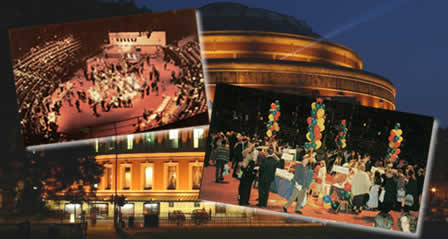|
Continued....
The day had a highly international flavour: Richard Israel came from Miami to give his presentation on Brain Sell, Lana Israel from Harvard University, Gordon Dryden from Auckland, New Zealand and Pecub from Switzerland.
For sheer sporting excitement in the realms of mental combat it would be impossible to beat the showdown between the two World Memory Champions past and present, Dominic O'Brien and Jonathan Hancock. Dominic had triumphed in the original Memoriad in 1991 and defended his title successfully in 1993. On both occasions he had been hotly pursued by Jonathan and then, in the 1994 event, Jonathan grabbed his chance when Dominic erred in the penultimate event and went on to register a memorable upset.

They had been slogging away all day in head-to-head combat with Dominic memorising a staggering IS packs of cards in one hour with no errors. The blitz playoff on stage reduced the acolytes to stunned awe as the two champions raced to memorise one pack in the minimum possible time. The event
was to be scored by taking the best result from three attempts. Due to Dominic's fine victory in the multiple pack memorisation, Jonathan was obliged to try for an almost impossible time (36 seconds) in this single deck event. In his first attempt, he went through the pack in a remarkable 33 seconds but, unfortunately for him, made two errors in the recollection. His second run was also unsuccessful and he had only one chance left.
As the tension became unbearable, chief arbiter David Berglas, the President of the Magic Circle, revealed that both contestants had been unsuccessful in their recollections in the final sprint. Therefore, Dominic's I 5 packs remained the dominant factor and he was awarded the title, against his great rival, of World Match play Memory Champion. Having also been the victor of the two individual events, Dominic was also declared the World Match play Champion in both marathon and speed memorisation.
Meanwhile, James Longworth, who has been very active in promoting the Use Your Head clubs and is in his final year at Eton College, won the World Student Match play Memory Championship. Continuing with the memory theme, Dr Sue Whiting and Ian Docherty successfully completed the memorisation of 1500 bits of data on the great geniuses and other cultural and historical information and were thus awarded the first advanced belts (as in the karate and judo systems) in memorisation.
|
To close the first part of the day Dmitri Bjelica made an award of the Chess Oscar on stage to FIDE World Chess Champion Anatoly Karpov for his superlative performance in the Linares tournament of 1994 where he set up a world ratings record. This award was made on behalf of the International Chess Writers Association.
A similar award was made to Ray Keene for his reports on chess in The Times. This prestigious title is awarded annually to the journalist regarded as the world's best chess writer. The previous evening at Simpson's-in-the-Strand Anatoly Karpov had played against the combined forces of Tony Buzan and artist Barry Martin on the board on which the famous Immortal Game was played in 185 1. This spectacle had brought the entire restaurant to a standstill as fascinated onlookers gathered to watch.
With just one day to prepare, Professor Ben Zander of the Boston Philharmonic Orchestra had rehearsed with students of the Royal College of Music to give the audience an evening concert penetrating the secrets of his art. Renditions of the Ode to Joy from Beethoven's Choral Symphony, his Coriolan Overture, Tchaikovsky's Romeo and Juliet and Bach's Air on a G
String proved to the audience that they are all musical and put everyone in a state of ecstatic expectation for the closing and awards dinner which was to follow. To conclude the concert the entire audience congregated in the centre of the hall and sang together in a rousing choral finale.
The awards dinner (the awards were sponsored by Silicon Graphics and the dinner by Packard Bell), proved a star-studded occasion attended by numerous international brain stars, such as Dominic O'Brien and Anatoly Karpov, as well as captains of industry like Rikki Hunt and Jamie Muir of Packard Bell. Also present was the London diplomatic community in the shape of representatives of the Russian Embassy, prominent artists such as Barry Martin and Lorraine Gill, and committee members of the Brain Trust, Lady Mary Tovey, Sir Brian Tovey, Tony Buzan, Vanda North and Ray Keene, who had organised the entire festival. Christopher Weller, head of BBC Worldwide, one of the main sponsors, concluded proceedings with a rousing and witty speech at the end of the evening.
The prestigious Brain of the Year award, offered by the Brain Trust, went posthumously to Dr Marion Tinsley who had been World Draughts Champion for an unprecedented 40 years. He proved a worthy successor to Garry Kasparov, Gene Roddenberry, Stephen Hawking, Dominic O'Brien and Lana Israel. Dr Tinsley's obituary for The Times was written by Tony Buzan and can be found
elsewhere in this issue.
The events also proved popular with the stewards and ushers at the Albert Hall who said they had never had so much fun in their entire working life at the hall. They did their best to persuade the organisers to mount another such event and they will no doubt be pleased to hear that plans for this are now being made. The next festival is scheduled for November 1996 and suggestions for events are welcomed from readers.
|
